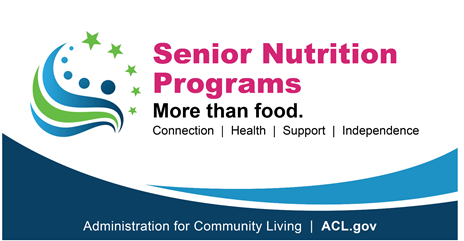Let’s Celebrate the National Senior Nutrition Program

Funded by the Older Americans Act, the National Senior Nutrition Program began in 1972 and has been meeting the nutritional, social, and wellness needs of Older Americans for nearly 50 years. Each March, the Idaho Commission on Aging recognizes its anniversary by celebrating the program’s rich history and tremendous value across the nation with the Area Agencies on Aging and all meal providers. The Administration for Community Living funds senior nutrition services, including home-delivered and congregate meals.

Reach out and encourage the elders in your life to consider attending a weekly congregate meal to promote a healthy mind and body!
March is a universal nutrition and diet awareness month, to raise the importance of nutritionally balanced diets for all ages and cultures, the importance of developing sound eating habits, while companioning physical activity to support overall strength and physical health. The U.S. Departments of Agriculture (USDA) and Health and Human Services release updated Dietary Guidelines for Americans every five years. Each edition reflects the current body of nutritional science and research on what to eat and drink to promote health, while reducing the risk of chronic disease.
Recommendations from the new Dietary Guidelines and MyPlate are to:
- Follow a healthy dietary pattern at every life stage.
- Customize and enjoy nutrient-dense food and beverage choices to reflect personal preferences, cultural traditions, and budgetary considerations.
- Focus on meeting food group needs with nutrient-dense foods and beverages and stay within calorie limits.
- Limit foods and beverages higher in added sugars, saturated fat, and sodium, and limit alcoholic beverages.
- Eat fruits and vegetables, fresh, frozen or canned. Eat dark green vegetables such as leafy greens or broccoli and orange vegetables such as carrots and sweet potatoes.
- Vary protein choices with fish, beans and peas.
- Eat at least three ounces of whole-grain cereals, breads, crackers, rice, or pasta every day. Choose whole grains whenever possible.
- Have three servings of low-fat or fat-free dairy (milk, yogurt, or cheese) fortified with vitamin D to help keep your bones healthy.
- Switch from solid fats to oils when preparing food.
By adopting these goals, your chosen theme strives to help people manage their weight successfully and reduce their risk of chronic disease while promoting general health.
In our busy, fast paced world, myths and misinformation on the internet, social media and other sources make nutrition and healthy eating confusing. Not to mention what is “good for you” is not the same for everyone. There is no one-size-fits all approach to healthy eating.
For more information on Congregate Meal Sites and Home-Delivered Meals, please contact your local Area Agency on Aging.

For additional nutrition information and free webinars during the month of March, please visit ICOA website and events. New nutrition education information will be provided starting March 1st and during the entire month.
Visit Administration for Community Living’s website to see how the healthcare system benefits if seniors eat a nutritious meal at a congregate meal site.
 Official Government Website
Official Government Website